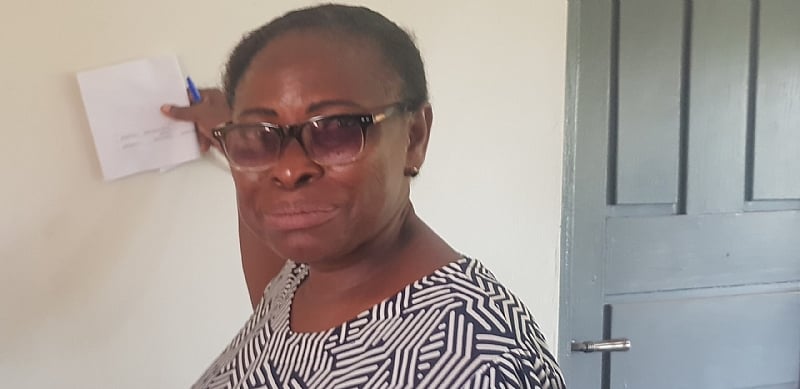The Bono Region of Ghana has witnessed an alarming number of pregnancies among young girls aged 10 to 14, totaling 526 cases between 2021 and 2024. This concerning statistic, presented by Miss Rita Adjoa Ansong, the Deputy Director of Nursing Services, Public Health at the Bono Regional Directorate of Health, represents only the recorded antenatal registrations from various health facilities, suggesting the actual number could be higher. Adding to the gravity of the situation, 93 cases of abortions were also recorded during the same period. The distribution of pregnancies across the years shows a fluctuating pattern, with 145 cases in 2021, 128 in 2022, 145 in 2023, and 108 in 2024. The prevalence of these pregnancies is widespread, affecting almost all 12 districts and municipalities within the region. This concerning trend highlights the urgent need for comprehensive interventions to address the underlying causes of teenage pregnancies.
The issue of teenage pregnancies is compounded by the high number of maternal and neonatal deaths recorded in the Bono Region. A total of 888 such deaths were recorded within the same timeframe, with 247 cases in 2021, 217 in 2022, 217 in 2023, and 207 in 2024. Of this figure, 90 cases were specifically maternal deaths. This disturbingly high number underscores the critical need for improved access to family planning services and comprehensive maternal healthcare. The current situation necessitates a collaborative effort from all stakeholders to enhance family planning coverage and reduce the risks associated with pregnancy and childbirth, especially among young mothers.
Family planning, defined as the conscious and informed decision by individuals or couples to control the number and spacing of their children, is a crucial element in addressing these challenges. It empowers women and girls to take charge of their reproductive health, leading to healthier pregnancies and reduced maternal and child mortality. Despite its importance, access to family planning services remains hampered by various obstacles, including myths and misconceptions, lack of community support, and deeply entrenched cultural and religious beliefs that often discourage the use of contraceptives. These barriers prevent many girls and women from accessing the necessary information and services to make informed choices about their reproductive health.
The Bono Regional Directorate of Health has reported a marginal increase in the coverage of family planning services. The regional coverage in 2024 was 39.58 percent of women of reproductive age, a slight improvement from the 36.45 percent recorded in 2023. This 0.08 percent increase is attributed to collaborative efforts with partners, improved commodity supply, and the re-registration of long-acting reversible contraceptive methods (LARCs). Furthermore, the provision of free contraceptive commodities by organizations like Marie Stopes, DKT, and the Planned Parenthood Association of Ghana (PPAG) has significantly contributed to the improved acceptor rate. However, continued and intensified efforts are needed to achieve a more substantial increase in family planning uptake.
The stakeholders’ meeting on the African Vaccination Week (AVW) and the Child Health Promotion Week (CHPW), organized by the Bono Regional Directorate of Health in Sunyani, served as a platform to address these critical issues. The meeting aimed to raise awareness about the importance of immunization and the full range of child health services available in the country. It also aimed to strengthen collaboration between government agencies, development partners, community leaders, health professionals, and the media to address the challenges surrounding teenage pregnancies, maternal and child mortality, and family planning uptake. The meeting underscored the need for a multi-pronged approach involving education, community engagement, and improved access to healthcare services.
The AVW, established by the World Health Organization (WHO) in 2010, is celebrated annually during the last week of April to promote immunization as a life-saving intervention. The CHPW, introduced by the Ministry of Health in 2004, is observed annually from May 5th to 9th and focuses on nutrition, immunization, and preventive care for children under five years old. These initiatives highlight the national and international commitment to improving child health and survival rates. By leveraging these platforms and strengthening collaborative efforts, the Bono Regional Directorate of Health aims to address the pressing issues of teenage pregnancies, maternal and child mortality, and improve access to essential healthcare services, particularly family planning, for women and girls in the region. The media plays a crucial role in disseminating accurate information, dispelling myths and misconceptions, and promoting positive social norms related to family planning and reproductive health.














